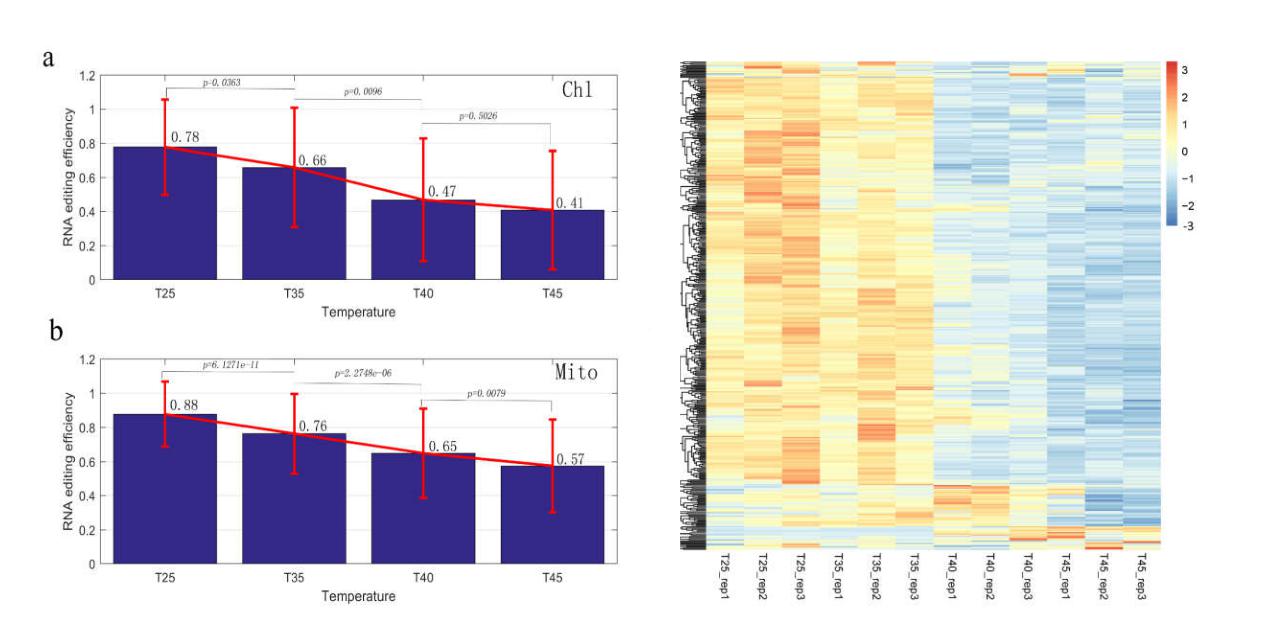Name:Xiujun Zhang
Tell:
Email:zhangxj@wbgcas.cn
Organization:Wuhan Botanical Garden
Heat Stress Reduces RNA Editing Efficiency in Grape
2019-12-12
Cytosine-to-uracil (C-to-U) RNA editing is a highly conserved process that post-transcriptionally modifies mRNA, generating proteomic diversity. However, its potential role in response to different stressors (heat, salt and so on) and growth development remains unclear.
The Plant Bioinformatics Group led by Prof. ZHANG Xiujun from Wuhan Botanical Garden tested the influence of the environmental factor temperature on RNA editing process in the whole mRNA from grape organelle.
This study found that RNA editing was responsive to environmental inputs in the form of temperature alterations. Using the angiosperms grape, 122 and 627 RNA editing sites in chloroplast and mitochondria were identified respectively with the average editing efficiency nearly ~60%, acute temperature alterations within a normal physiological range resulted in substantial changes in RNA editing levels.
The response of reduced RNA editing efficiency to temperature alterations further confirmed the relationship between environmental factors and RNA editing, which might be through intrinsic thermo-sensitivity of the RNA structures that directed editing, or due to temperature sensitive expression of the RNA editing enzyme (PPR genes). Environmental cues, in this case temperature, rapidly reprogrammed the grape organelles transcriptome through RNA editing, presumably resulting in altered structure or function of edited proteins.
These findings suggested that the RNA editing events were very sensitive to heat stress, the changes of amino acid in RNA editing genes may contribute to the stress adaption for grape.
Results entitled “Dynamic response of RNA editing to temperature in grape by RNA deep sequencing” were published on Functional & Integrative Genomics.

Comparison of RNA editing efficiency and expression pattern of PPR proteins under different temperatures (Image by WBG)